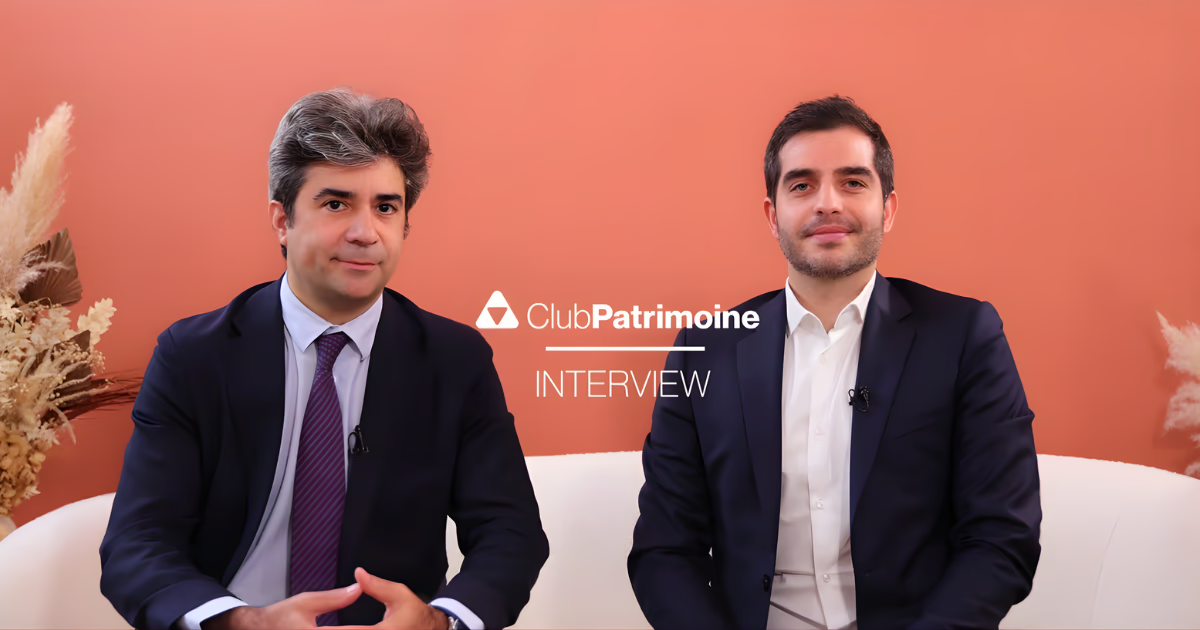During the Patrimonia 2025 event, Maxime Vanneaux, Head of Partner Relations at Private Corner, shared his insights on the evolution of the private equity market, the durability of recent performance trends, and the growing importance of manager selection. He also presented Private Corner’s latest developments.
How is Private Corner positioned in a booming Private Equity market?
The private equity market is experiencing sustained growth, with a surge of new managers and products entering the space. While this expansion signals strong investor appetite, it also requires caution. Understanding the structure of funds, the quality of managers, and realistic performance expectations is crucial.
Watch Club Patrimoine vidéo

At Private Corner, we prioritize prudence and professionalism. Our approach is to enhance the client experience in close partnership with our B2B network — including wealth managers, private banks, and multi-family offices — by aligning cash flow mechanics with institutional standards and adopting a transparent fee model designed to preserve the value created by the underlying funds we select.
What criteria should wealth managers consider when selecting private market funds?
The private market universe is vast, diverse, and rapidly evolving. The dispersion between managers has always been significant — and it continues to widen. This is precisely where Private Corner’s expertise lies: identifying the most reliable and consistent managers.
We focus on several key criteria:
* The robustness of the track record,
* The quality and depth of the deal flow,
* The ability to define and execute clear strategic plans,
* And above all, the capacity to generate liquidity and return capital to investors.
Metrics such as DPI (Distributed to Paid-In) and the multiple-to-time ratio are central to our analysis, as they reflect real, realized performance — not just paper value. These factors are the cornerstone of both our selection process and our overall positioning.
Are recent private equity performances sustainable?
In the past, much of the value creation came from leverage and multiple expansion. Today, it is driven by EBITDA growth and operational improvement within portfolio companies. Managing performance has become more complex — the playbook has changed.
The macro and micro environments are no longer the same, and it’s unlikely that the exceptional returns of the past decade will simply repeat themselves. That said, private markets remain a powerful diversification tool, offering a risk/return profile that is distinct from listed assets.
While performance levels are expected to normalize, the asset class should continue to outperform traditional markets over the long term, provided that manager selection remains disciplined.
Private Corner’s range: a modular and complementary approach
Private Corner currently offers 11 funds, structured around a “pure building block” approach. Each fund represents one manager and one specific strategy, designed to be complementary with the others.
This architecture allows wealth managers to build tailored allocations over time, combining:
- Core portfolio strategies, highly diversified with a balanced risk/return profile,
- And satellite themes, designed to generate additional alpha.
We view private markets as a portfolio construction tool — following a core-satellite logic — rather than a standalone product range.
Which fund would you recommend for a first-time investor in Private Equity?
For investors entering the asset class for the first time, core strategies are the best starting point. These vehicles offer broad diversification, often 10 to 100 times greater than that of a traditional concentrated buyout fund.
At Private Corner, our core portfolio includes secondary funds, private debt, and GP Stakes strategies — the latter being a lesser-known but highly attractive segment. GP Stakes involves taking minority interests in private market managers, combining elements of primary, secondary, and private credit strategies. This hybrid positioning makes it a compelling first step for investors seeking balanced exposure to private markets.
How much should investors allocate to private equity?
Market practice generally recommends allocating 15% to 25% of investable wealth to private markets. However, this depends on the client’s overall financial profile and savings capacity.
For example:
* An investor with €700,000 in financial assets might allocate around 15%,
* Whereas a client with €10 million, perhaps following a business sale, could allocate up to 30–40%.
The key is to assess both the existing wealth (“stock”) and future savings (“flows”). Private markets are best approached not as a one-off investment, but as an ongoing allocation strategy, aligned with the investor’s long-term liquidity and objectives.
What are the benefits of investing in Private Equity through a Luxembourg life insurance policy?
A Luxembourg insurance contract offers a powerful wealth planning framework for investors looking to integrate private market funds into their portfolios.
It enables full upfront allocation of committed capital, while capital calls are managed within the wrapper. Moreover, gains that would normally fall under standard taxation benefit from favorable tax treatment within the policy — particularly for core portfolio funds offered by Private Corner.
This makes it both a pragmatic and tax-efficient solution for private investors.
What is the Private Corner Academy?
Integrating private markets into private wealth management requires more than product access — it demands education and understanding.
That’s why we created the Private Corner Academy, a dedicated learning platform for our partners. It offers podcasts, opinion pieces, videos, and in-depth guides, helping advisors and wealth managers understand, analyze, and challenge the private market solutions available to their clients.
Our goal is to support a long-term integration of private assets into wealth portfolios through knowledge and transparency.
Coming soon at Private Corner: the Blue Owl GP Stakes strategy
The GP Stakes strategy remains relatively unknown in Europe, but it has a long and proven history in the United States.
With nearly $300 billion in assets under management, Blue Owl dedicates over $70 billion to GP Stakes and dominates the large-cap segment, holding about 90% market share.
The firm invests minority stakes in other private market managers, providing them with growth capital while securing long-term governance stability.
This hybrid approach — blending the benefits of primary, secondary, and private credit strategies — will soon be available to Private Corner’s clients, expanding their access to one of the most innovative segments of the private markets.







